THE BALLAD OF HEAT AND STORMS
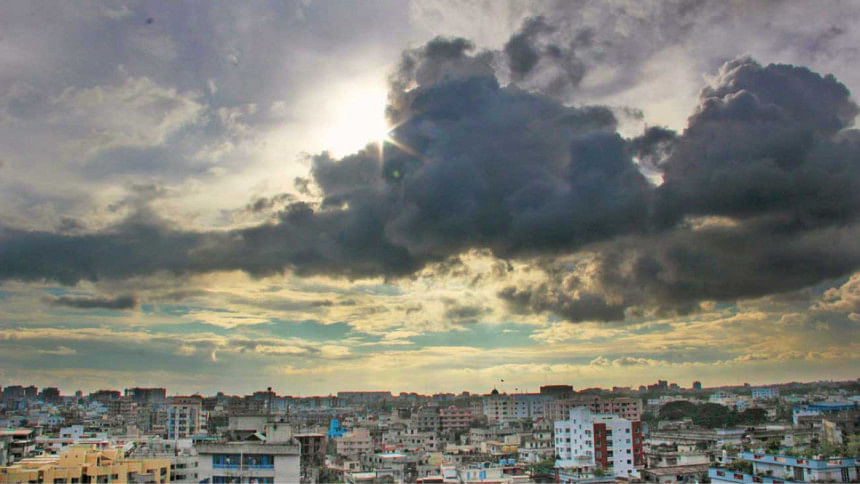
Boishakh's different elements provide a powerful setting for our writers to talk about overcoming odds and welcoming a new dawn.
It's hard to find any Bangladeshi who has not hummed Rabindranath Tagore's song Boishakh Abahon on the very morning of Pohela Boishakh. We embark on all our celebrations with Esho he Boishakh with a hope to shed the clutter and chaos of the previous year and to get rid of every evil bringing distress in our life:
"Esho esho esho he boishakh
Taposh nishshash baye mumurshore dao uraye
Botshorer aborjona dur hoye jak"
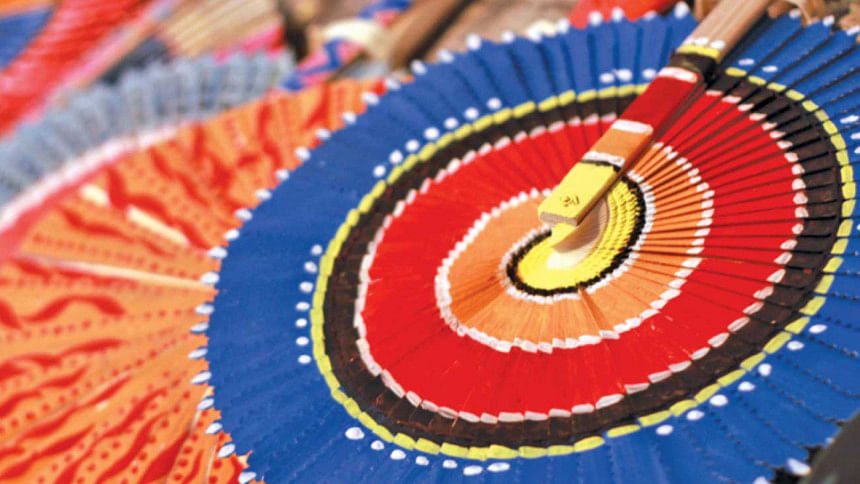
Boishakh also arrives with hope - hope for betterment and prosperity which has been captured by many other poets like Shukanta Bhattacharya. His poem Boishakhi inspires us to rediscover our new strength, imbedding the faith to put a brave front for all the challenges that life offers:
"Esho esho esho he nobin esho esho he boishakh
Esho alo esho he pran dako kalboshekhir dak"
The fact that this fresh start of Noboborsho gives us a chance of self-purification and reinvention has been evident in many literary works. Shamsul Haque's poem Boishakh can be mentioned in this regard. He views Boishakh as another opportunity to reinvigorate ourselves with sheer optimism for a positive change by saying:
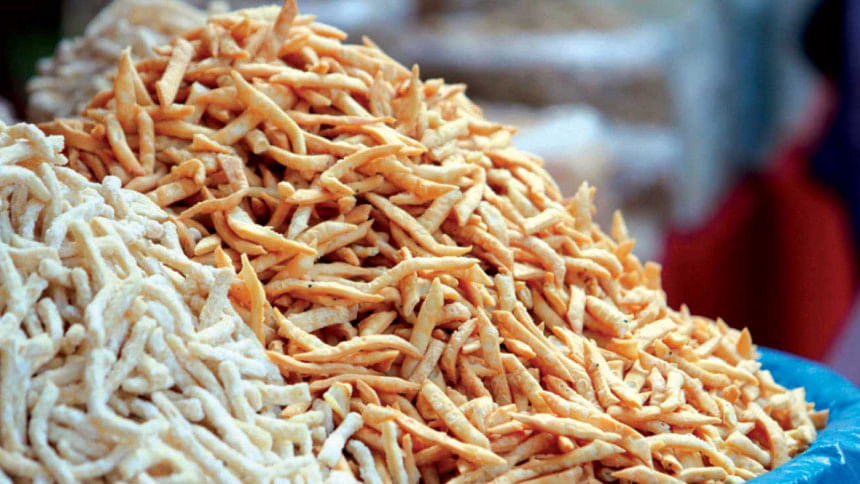
"Purono amake notun notune
Shajiyechhe boishakh."
The deadly kalboishakhi storm lies in the core of Boishakhi Literature, mostly earning a reputation of being heroic and beautiful.
Kalboishakhi has been portrayed as a barrage of violent storms that whip through the earth, spurring beautiful thunderbolts and removing all the evil and dirt from this world. In our literature, we mostly find this deadly phenomenon a strong valiant warrior, equipped with lightning bolts and abrupt showers, who conquers fear and intolerance. Forrukh Ahmed in his poem Boishakh has described this midsummer storm as a terminator that could fight against the tyrannical injustice towards harmony:
"Dhongsher nokib tumi he durbar, durdhorsho boishakh
Shomoyer baluchore tomar konthe
Shuni aj okunthito ployer dak."
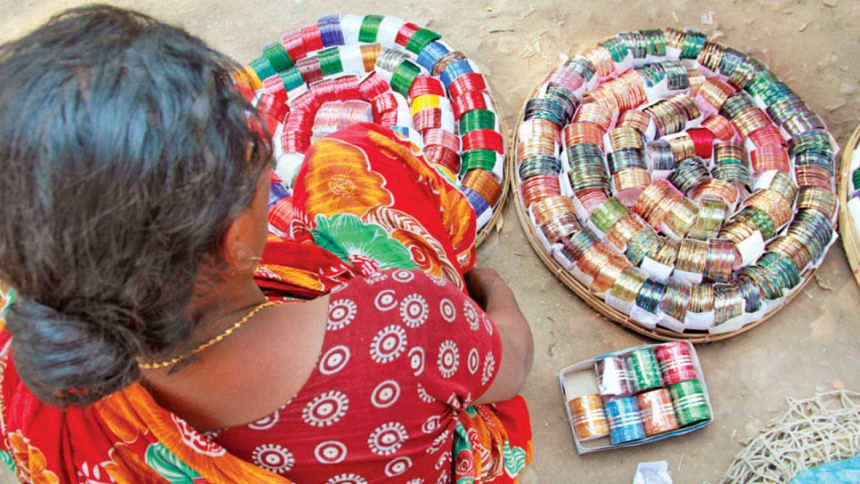
Revolutionary poet Kazi Nazrul Islam has also depicted kalboishakhi as a bearer of freshness in his poem Proloyollash. We are all familiar with his powerful verses, as he welcomes the jubilations of the arrival of the mighty kalboishakhi:
"Tora shob joyodhoni kor, tora shob joyodhoni kor
Oi notuner keton ore kalboshekhi jhor"
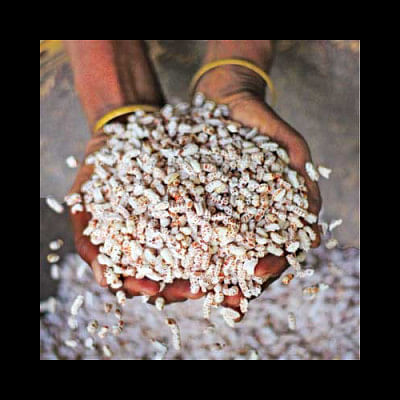
Being the largest celebration in our mundane lives, the riots of colors, laughter and festivity that Pohela Boishakh brings along with it have always been another important feature that our literature talks about. While some of them depict our longstanding customs like mangal shobha jatra, carnivals, putul nach and age-old rituals like halkhata, boishakhi mela, punnah, some have satired the urban attempt of replicating the rural culture.
We could find the celebratory face of the Boishakhi mela in Dinendronath Roy's Pallichitro where he illustrates the beauty of a Boishakhi carnival, as he mentions traditional food items like muri, murki, khoi batasha and kodma, along with an array of hand-crafted items, clay dolls, bronze utensils, wooden horses, tin ships, glass bangles - everything that charms and bedazzles the people visiting the carnival:
"Shobar cheye anandamoy
Oi meyetir hashi
Ek poyshay kineche o
Talpatar ek bashi"
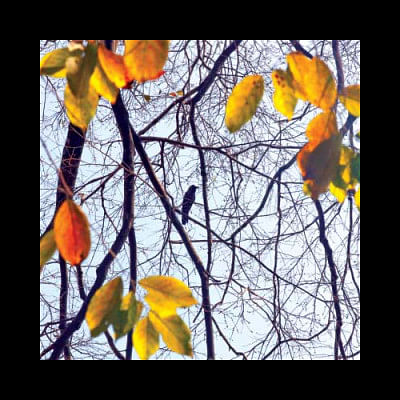
Here by talking about the smile and happiness of the girl after buying a simple, inexpensive flute made with leaf, he welcomes all of us to rejoice the simple pleasures that life has to offer.
The celebration among the indigenous culture is also quite glitzy and full of pomp as they pray for an abundance of crops and happiness and bountiful prosperity in their agriculture based society. Their indigenous literature depicts the joy and hope that they derive from Pohela Boishakh celebration:
"Hoi hoi joomot jebong
Joome jeine gochcha shuda tulibong
Gochcha shuda tuline tenga kamebong"
This refers to an optimistic call to go for joom cultivation, where they can grow abundant crops and earn money on the eve of Pohela Boishakh.
Boishakh is every bit as majestic and festive as portrayed in our literature. While the rest of the world views storms as a negative force, our writers have portrayed kalboishakhi as a force that takes away all the evil from our lives. On that note, let's hope for a year full with positive energy and prosperity.
Shubho Noboborsho!

 For all latest news, follow The Daily Star's Google News channel.
For all latest news, follow The Daily Star's Google News channel. 


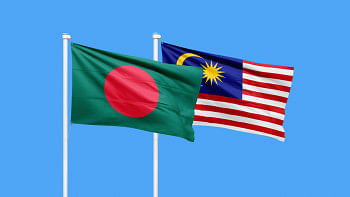
Comments